Note: Your are not logged in. We can not keep your scores or track your progress unless you Register and Log In
Driver's Handbook on Cargo Securement - Chapter 13: Large Boulders
What Does This Section Cover?
The requirements in this section apply to any piece of natural, irregularly shaped rock that:
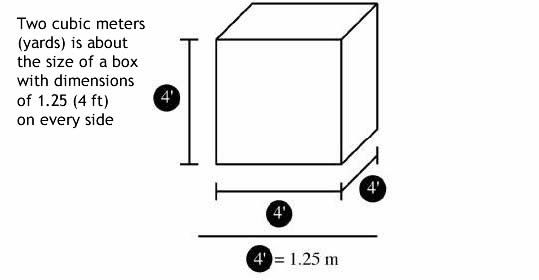
Weighs more than 5,000 kg (11,000 lb.) or has a volume greater than two cubic meters
Is transported on an open vehicle or in a vehicle whose sides are not designed and rated for the transportation of boulders.
Boulders weighing less than 5,000 kg (11,000 lb.) may be secured in one of two ways:
1. Using the requirements for large boulders (this section)
2. In some situations, using the general cargo securement requirements (Section 2) if:
- Transported in a vehicle designed to carry boulders.
- Boulders are stabilized and adequately secured by tie-downs.
Rock that is formed or cut to shape and has a stable base can be secured:
Either by the requirements for large boulders.
Or by the requirements for general cargo
Positioning Boulders
Requirements
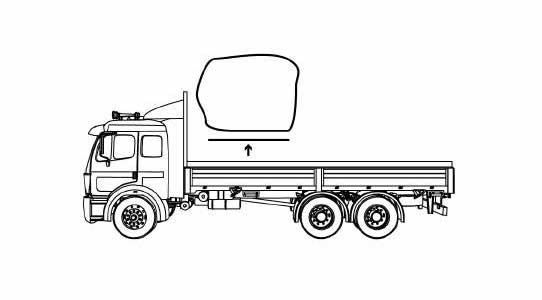
Place each boulder on the vehicle with its flattest and/or largest side down.
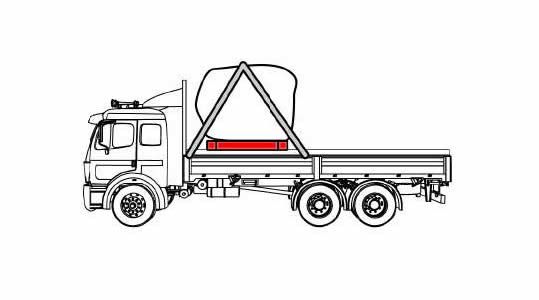
Support each boulder on at least two pieces of hardwood blocking (at least 10 cm x 10 cm (4 x 4 in) that extend the full width of the boulder.
Place hardwood blocking pieces as symmetrically as possible under the boulder so they support at least 3/4 of the length of the boulder.
Requirements
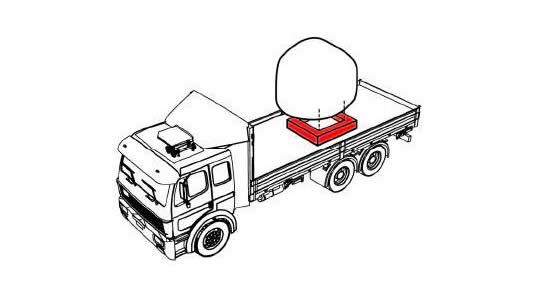
If the flattest side of the boulder is rounded or partially rounded, place the boulder in a crib made of hardwood fixed to deck of vehicle.
Boulder should rest on both deck and timber, with at least 3 well-separated points of contact that prevent rolling in any direction.
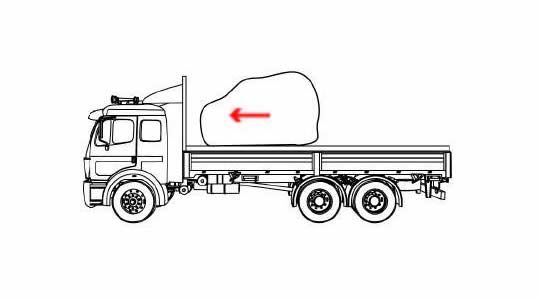
If a boulder is tapered, point the narrowest end towards the front of the vehicle.
Multiple-Choice Questions:
When loading and securing a boulder, it should be:
- All of these are requirements.
- Placed on the vehicle with its largest or flattest side down.
- Supported on at least 2 pieces of 4in x 4in hardwood blocking, extending the full width of the boulder.
- Placed on symmetrical hardwood blocking that extends 3/4 of the length of the boulder.
Requirements

Place each boulder on the vehicle with its flattest and/or largest side down.

Support each boulder on at least two pieces of hardwood blocking (at least 10 cm x 10 cm (4 x 4 in) that extend the full width of the boulder.
Place hardwood blocking pieces as symmetrically as possible under the boulder so they support at least 3/4 of the length of the boulder.
The narrowest end of a boulder should be pointed:
- Towards the rear of the vehicle.
- It doesn't matter.
- Towards the front of the vehicle.
- Towards the sky.

If a boulder is tapered, point the narrowest end towards the front of the vehicle.
To prevent rolling, how many points of contact are required, at minimum, for a boulder resting on a rounded or partially rounded side?
- 4
- 5
- 2
- 3
Requirements

If the flattest side of the boulder is rounded or partially rounded, place the boulder in a crib made of hardwood fixed to deck of vehicle.
Boulder should rest on both deck and timber, with at least 3 well-separated points of contact that prevent rolling in any direction.
Specific securement methods are required for boulders that:
- Weigh more than 5,000 lbs, or have a volume of more than 4 cubic meters.
- Weigh more than 11,000 lbs, or have a volume of more than 2 cubic meters.
- Weigh more than 5,000 lbs, or have a volume of more than 1.25 cubic meters.
- Have more than five distinct sides.
The requirements in this section apply to any piece of natural, irregularly shaped rock that:

Weighs more than 5,000 kg (11,000 lb.) or has a volume greater than two cubic meters
Is transported on an open vehicle or in a vehicle whose sides are not designed and rated for the transportation of boulders.
Complete!
You can Return To The Table Of Contents







 TT On Facebook
TT On Facebook